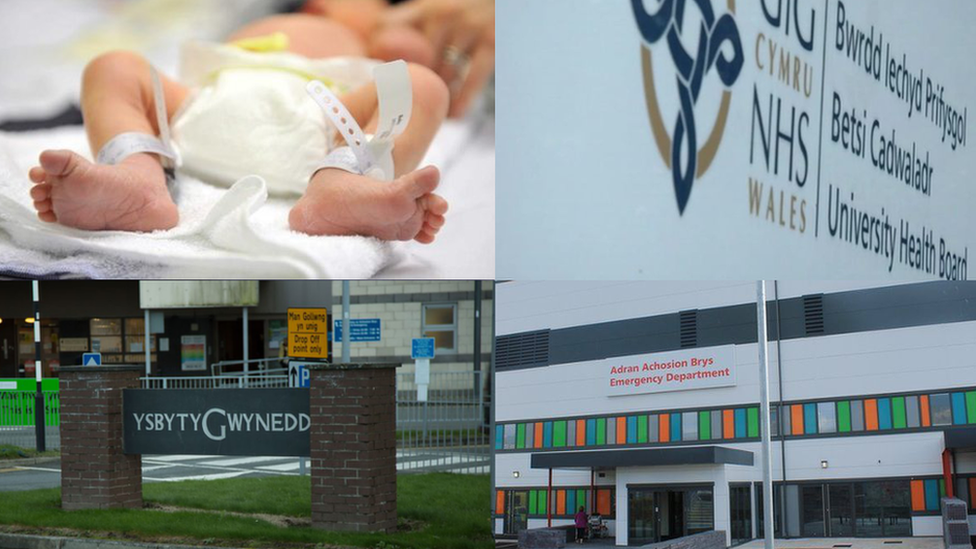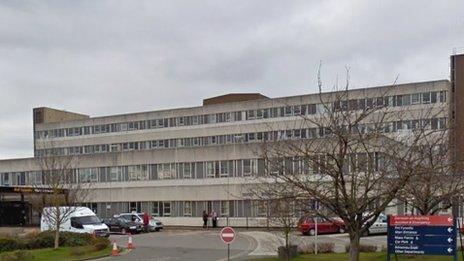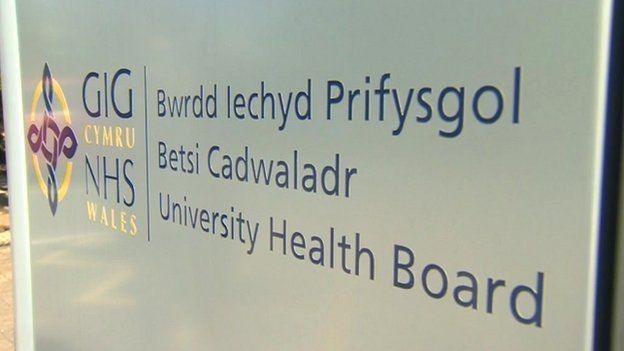16 north Wales maternity unit closures in a year
- Published

Maternity units in north Wales have had to suddenly close on 16 separate occasions in just 12 months, BBC Wales has learned.
A shortage of doctors is often the reason which has left expectant mothers being transferred at short notice to give birth further away from home.
It is understood the three maternity units in Gwynedd, Denbighshire and Wrexham have on different occasions implemented "emergency closures".
These usually last for several hours.
"It's incredibly disruptive (for mothers)," said Betsi Cadwaladr Health Board's head of midwifery, Fiona Giraud.
"The first that any woman would know about it would be when they phone the unit in early labour or when seeking advice in relation to their pregnancy.
"But this is a service that's currently run as if it's in emergency mode 24-hours a day and it is monitored to that level. No other maternity service in Wales or any of the other countries are monitored to this level."
Fiona Giraud said the service was being run as if in an emergency mode 24 hours a day
Staff sickness, a lack of a temporary locum positions, or mothers with high level or complex care can bring levels at any one unit below what bosses deem to be safe and they say they have no option but to shut the doors.
Decision time
The health board argues full-blown maternity services cannot be kept running at all three hospitals.
It wants to temporarily transfer maternity doctors from Glan Clwyd Hospital in Bodelwyddan to strengthen the teams at Bangor's Ysbyty Gwynedd and the Wrexham Maelor Hospital.
Glan Clwyd would only have a stand alone midwife-led maternity unit - for low-risk pregnancies. Higher risk mothers would need to go to Bangor or Wrexham.
But the proposal has caused uproar amongst some campaigners.
Following a public consultation, the health board will decide what to do on 8 December.
Interim chief executive Simon Dean said: "The whole point of these changes is to offer the best possible treatment to the people we serve and on occasions that may have to mean travelling distances that in an ideal world they'd prefer not to."
- Published1 October 2015

- Published18 August 2015

- Published16 August 2015
